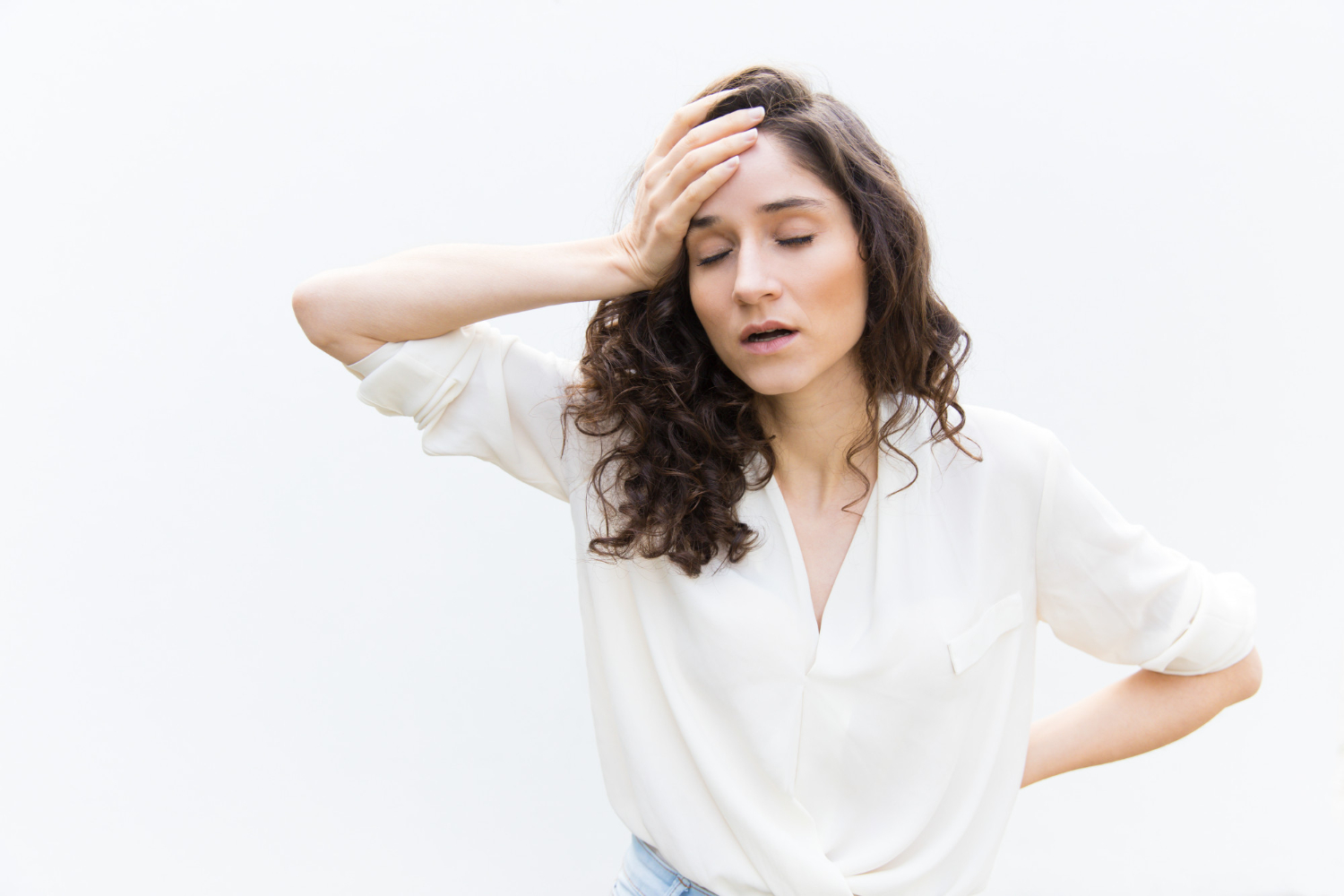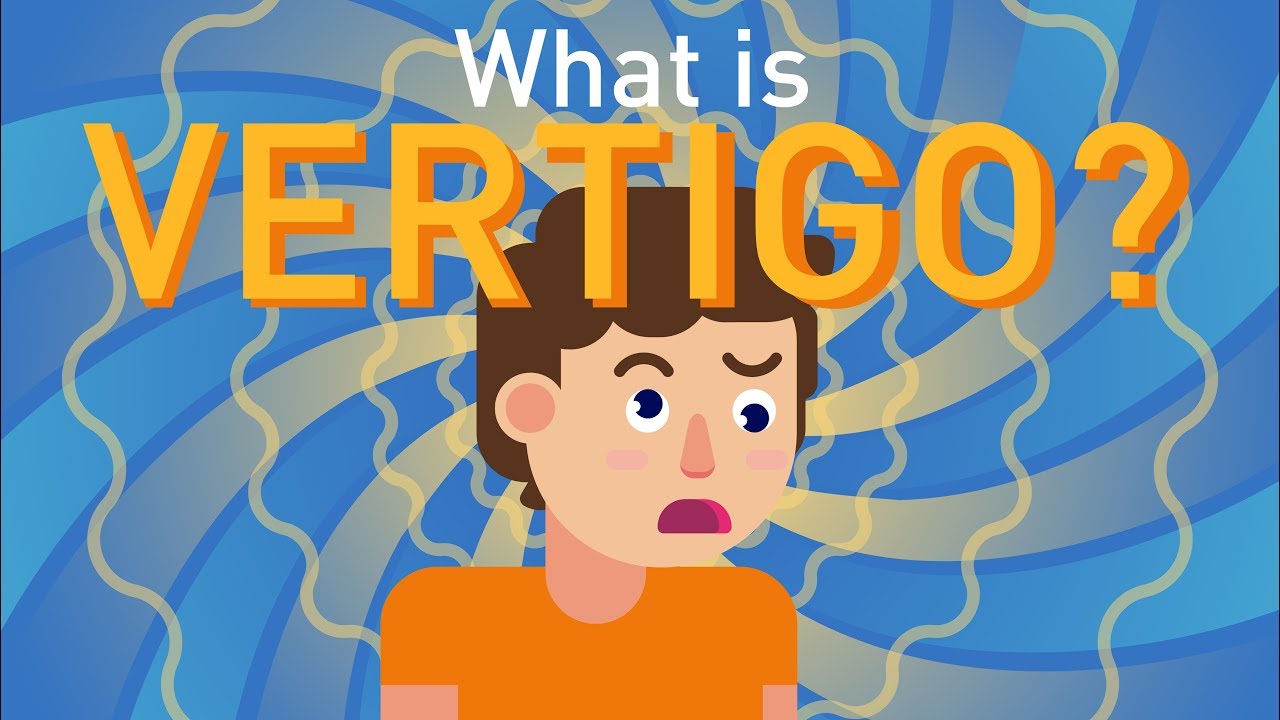Natural And Medication Treatment Options For Vertigo
Vertigo is a feeling of motion or spinning that is sometimes referred to as dizziness. It might cause dizziness and loss of balance. Vertigo is not an illness. Rather, it is a sign of several diseases. Vertigo is distinct from lightheadedness. Vertigo is the sensation that one is spinning or moving, or that the world is swirling around them.
Author:Katharine TateReviewer:Karan EmeryJan 25, 2023217 Shares2.8K Views

Vertigois a feeling of motion or spinning that is sometimes referred to as dizziness. It might cause dizziness and loss of balance. Vertigo is not an illness. Rather, it is a sign of several diseases. Vertigo is distinct from lightheadedness. Vertigo is the sensation that one is spinning or moving, or that the world is swirling around them.
Vertigo attacks may occur rapidly and last just a few seconds, or they might persist for much longer. If you have severe vertigo, your symptoms may be persistent and linger for days, making it extremely difficult to live a regular life.
Despite the fact that both dizziness and vertigo are classified as balance issues, the two sensations are distinct. Dizziness is a general sensation of imbalance. Vertigo is characterized by the sense that you or your surroundings are moving or spinning.
Vertigo episodes may happen at any age, although they’re more prevalent in persons over 65. Women are somewhat more likely than males to feel vertigo. Some pregnant women report dizziness as a side effect. Vertigo is a frequent problem. At least once in their lives, vertigo affects over 40% of Americans.
Vertigo Causes
Vertigo has several potential triggers. The vestibular nerve, the vestibular system, and the cerebellum are all potential causes of vertigo. A problem with the inner ear's balance mechanisms is the most prevalent cause of vertigo, however issues in other regions of the brain are also possible.
Migraines, orthostatic hypotension, head trauma, stroke, and multiple sclerosis all contribute to the systemic nature of the problem. One of the most prevalent types of vertigo is benign paroxysmal positional vertigo.
Vertigo may be accompanied by other symptoms including fever, ringing in the ears (tinnitus), and hearing loss, although these can vary from case to case.

What is Vertigo?
Treatment For Vertigo
For some people, vertigo goes away on its own after a while even if they don't get any medication for it. In the case of Ménière's illness, however, recurrent attacks might last for years. There are specialized therapies for several causes of vertigo. Benign paroxysmal positional vertigo may be treated with a series of simple head movements (the Epley procedure).
In the early stages, or in most instances of vertigo, medications like prochlorperazine and certain antihistamines may be helpful. Vestibular rehabilitation training (VRT) is a set of exercises for persons with dizziness and balance issues, and it is helpful for many people who suffer from vertigo.
Repositioning Movements
Canalith repositioning, often known as the Epley procedure, is used to alleviate benign paroxysmal positional vertigo symptoms. These precise head movements may assist in dislodging canalith crystals (small particles that can induce vertigo) from the inner ear canals.
Each therapy session consists of holding four postures for 30 to 60 seconds and repeating each position as necessary. During the session, a healthcare expert may coach you through each exercise. Additionally, they may offer extra instructions on how to execute this operation at home.
Medication
Meclizine belongs to the class of antihistamines, which are often used to treat allergies. Meclizine is an excellent treatment for motion sickness and vertigo. However, older folks may have disorientation or even forgetfulness as a result.
Exercises
There are several exercises used to treat vertigo symptoms. Typical balancing exercises include moving in place or maintaining precise stances. These activities are comparable to those used in rehabilitation training.
Rehabilitation training consists of exercises customized according to the individual and their symptoms. After a comprehensive clinical assessment, one of three primary treatments is utilized:
- The habituation that alleviates dizziness
- Gaze stabilization, which increases eye movement control so that vision is clear during head movement balancing training, enhances stability.
- However, if you have severe vertigo, it is better to get extra instruction from an expert physical therapist rather than practicing these exercises on your own.
Surgery
Surgery may be necessary for the treatment of certain underlying conditions that can cause vertigo, such as a brain tumor or head injury. There are several ways to naturally relieve discomfort caused by vertigo.
Certain supplements, such as ginkgo biloba and melatonin, may aid enhance sleep when coping with vertigo, for instance. Additionally, there are other exercises for vertigo that may be performed at home, such as the Brandt-Daroff exercises, the Semont maneuver, and the Foster maneuver.
Essential Oils For Vertigo
Lavender and other essential oils may be able to stop vertigo and nausea. It is critical to note, however, that there is presently no evidence to support the use of essential oils for vertigo.
Homeopathic Treatments For Vertigo
There are a number of medications out there intended to alleviate vertigo symptoms, but none of them seem to function well. Additionally, homeopathy is the safest alternative.
Using homeopathy to treat vertigo may help keep the condition's severity and frequency under check. As a bonus, it may help your body fight off illness. Because of this, homeopathy is the go-to medicine for relieving vertigo.
Thanks to the proliferation of web-based resources, sufferers with vertigo now have a plethora of options for virtual care. None, however, provide the precise and risk-free outcomes that homeopathic medications do. Consequently, homeopathy has provided a number of treatment options for dizziness.
- Bryonia: Bryonia treats gastric vertigo homeopathically. Gastric vertigo causes nausea and dizziness. Bryonia relieves vertigo immediately upon awakening. Bryonia alleviates dizziness while changing sides while sleeping. It relieves symptoms and treats the illness.
- Cocculus: Another vertigo homeopathic remedy. If you have problems when sitting or travelling in a vehicle or train, the therapy may help. Cocculus may relieve vertigo, nausea, vomiting, and a sensation of emptiness.
- Gelsemium: Gelsemium, another homeopathic vertigo treatment. This drug treats dizziness, heavy eyelids, hazy vision, and head. Gelsemium treats vertigo holistically. It works well for vertigo that begins behind the head and spreads.
- Phosphorous: Phosphorous helps alleviate vertigo in people over 60. The medicine works well on morning vertigo. It relieves fainting, spinning, and floating. These are common vertigo symptoms. Dark-lovers should use the cure. This drug may greatly improve the situation.
- Pulsatilla: Delayed menstrual periods are helping this therapy manage vertigo. Pulsatilla reduces nausea and the impression of moving things. Homeopathy is the most effective treatment for vertigo and its causes. Drugs may tackle the condition's fundamental causes. If you get vertigo, see a homeopath. Vertigo healing is greatest with homeopathy.
Home Remedies For Vertigo
There is insufficient data to conclude that alternative therapy can cure vertigo. Nevertheless, some individuals use herbal remedies to alleviate their symptoms. Popular natural cures for vertigo include:
- Turmeric.
- Ginkgo biloba.
- Cayenne.
- Ginger root.
- Gongjin-dan.
Before adding herbal supplements to your diet, you should consult with a healthcare professional. They can help you integrate them safely into your routine.
People Also Ask
What Are The First Signs Of Vertigo?
- Difficulty focussing the eyes
- Dizziness.
- Loss of hearing in one or both ears.
- Loss of stability (may cause falls)
- There is ringing in the ears.
- Nausea and vomiting, resulting in fluid loss.
How Can Vertigo Go Away?
Most individuals with vertigo recover without therapy. Treatment depends on the underlying reason. Antibiotics may be prescribed by a physician if the reason is an infection. Additionally, you may be given activities to fix your balance.
Can Vertigo Be Caused By Stress?
Vertigo affects around 5 percent of American adults, and many individuals experience it when they are worried or nervous. Even while stress does not directly cause vertigo, it may lead to malfunction of the vestibular system, the region of the inner ear that regulates balance.
Final Thought
Infections, migraines, traumas, and other medical issues are just some of the numerous potential causes of vertigo. The best strategy to reduce symptoms and provide long-term relief from vertigo is to treat the underlying cause of it.
There is a wide variety of possible help from home cures, physical activities, and pharmaceuticals. You should see a medical professional about your vertigo if you can't figure out what's causing it on your own.

Katharine Tate
Author

Karan Emery
Reviewer
Latest Articles
Popular Articles